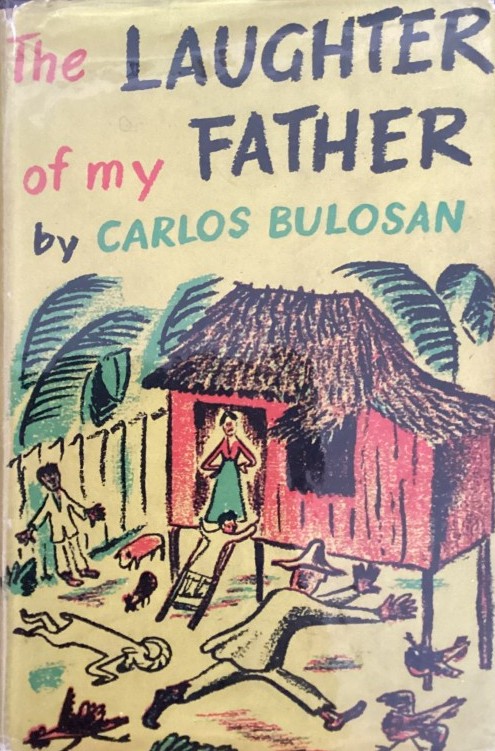Inspiring Older Readers
 posted on 27 Apr 2025
posted on 27 Apr 2025
The Laughter of my Father by Carlos Bulosan
Carlos Bulosan (1913 – 1956) was a name completely new to me when I stumbled upon his 1945 publication, The Laughter of my Father, and I decided it looked interesting enough to risk a small outlay to see what I’d been missing. As it turned out, Bulosan was well worth the investment – not just for the contents of the book but for the discovery of a fascinating back-story.
Born in the Philippines with joint Filipino-American nationality, he moved from an impoverished, rural family that subsisted on agriculture to the Atlantic coast of the USA, where he stayed for the rest of his life. When he arrived in Seattle he found that racism constrained and shaped his life and during a period of severe illness (TB as it turned out) he used the time to study and read.
Bulosan was a political radical and committed trade unionist and worked for the International Longshore and Warehouse Union which represented plenty of other exploited Filipino immigrants. By the early 1940s he was publishing writings that were starting to garner critical praise - but his radicalism and radical writing didn’t go unnoticed and he fell foul of the McCarthy witch-hunts and found himself unable to find publications that would accept his work.
Sadly, he found himself in desperate straits and, now ill and alcoholic, he actually died of malnutrition and bronchopneumonia in 1956. Following his death, his work was largely forgotten for twenty years until, in the 1970s, a generation of younger American Asians began to uncover his legacy. Wikipedia now notes:
“Bulosan's works and legacy is heralded in a permanent exhibition, "The Carlos Bulosan Memorial Exhibit," at the Eastern Hotel in Seattle's International District. Its centerpiece mural is titled "Secrets of History" and was created by Eliseo Art Silva.
In 2018, the Bulosan Center for Filipino Studies Initiative was established at the University of California, Davis to carry on his legacy of activism through research and advocacy of the Filipino and Filipino-American community.”
But what of the book? This is a collection of short, humorous pieces that originally appeared in The New Yorker before he fell foul of McCarthy and each little vignette runs from three to maybe five pages maximum. He revisits the village life of his childhood in the Philippines and the stories focus on the eccentric and often outrageous behaviour of his father and wider family – mother, four brothers, uncles and cousins. Everyone living in the village of Binalonan on the island of Luzon is poor but astonishingly resourceful and Bulosan manages to create a world with its own rules and boundaries that, although undeniably poor is, in a child’s eye, almost cosy. I’ve been trying to think of who else you might compare this with and I think, in spirit if not in content, the best I can come up with is Garrison Keillor’s Lake Wobegon Days or maybe the spirit that underlies the short stories of H.E. Bates. There’s undoubtedly a sort of exoticism in the stories because this pre-World War Two rural Philippine village life is a million miles away from the urban experiences of the USA or Europe but the stories focus on the quirks and oddities of human nature – and that’s a universal subject that will resonate with modern readers today.
It's not an easy book to get hold of unfortunately – paperback editions have appeared but then disappeared and so prices remain high on the second-hand market. You might, however, find a second-hand copy if you are lucky when you’re mooching in a bookshop – or maybe it’s time for a visit to the library?
Terry Potter
April 2025